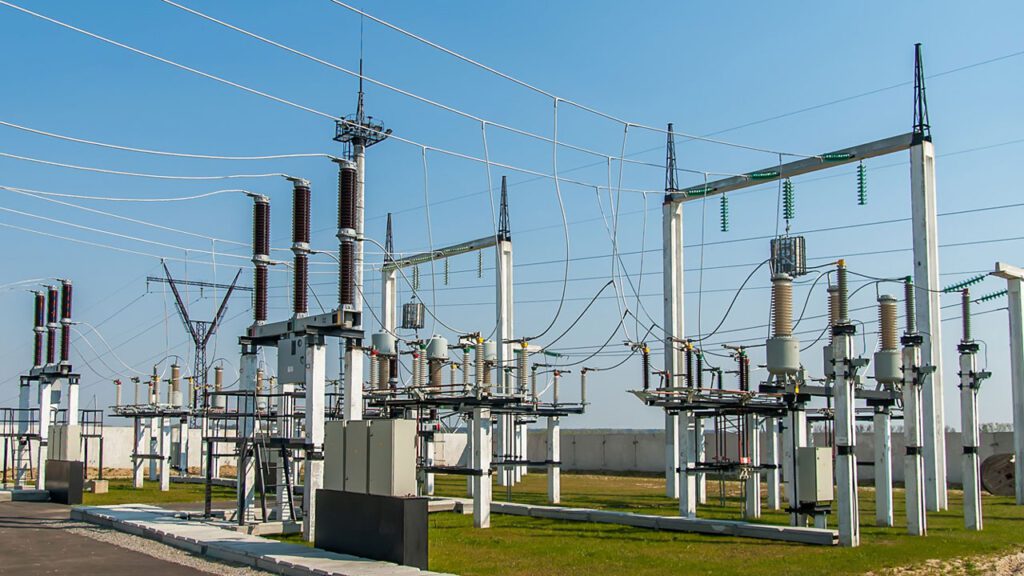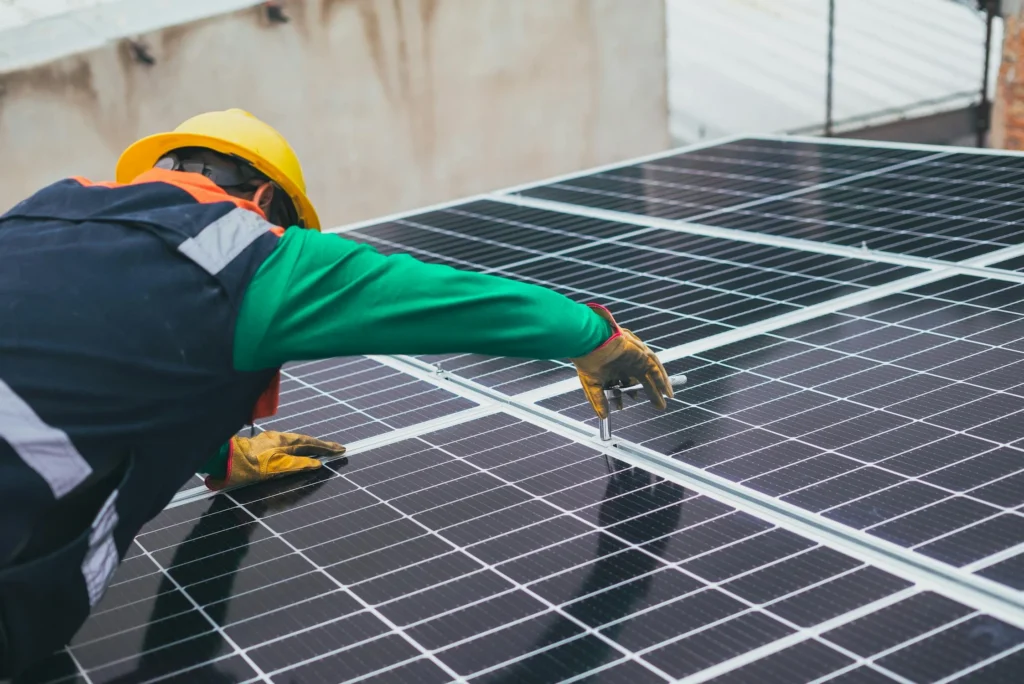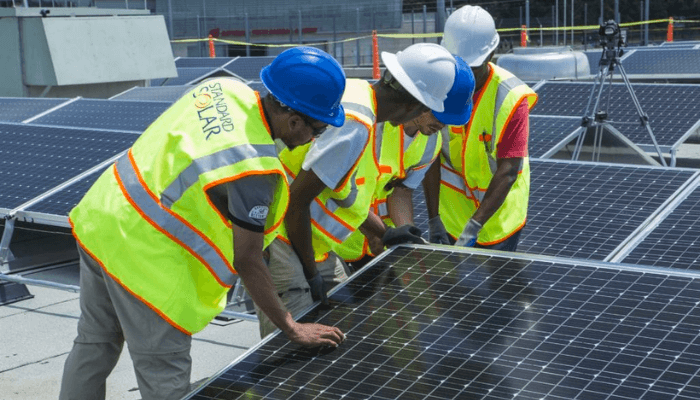The potential of renewable energy business in Nigeria is enormous, the country is in dire need of a sustainable alternative. The world is fast going green, renewable energy has become more sought after in recent times. Renewable energy businesses in Nigeria and Africa are gaining significant traction as the global shift towards sustainable practices intensifies.
Nigeria has abundant fossil fuel resources, but the nation has struggled to provide stable electricity to its citizens. Millions still lack access to what should be a given with no light at the end of this tunnel.
Renewal energy provides a better and more sustainable alternative for countries like Nigeria.
This article explores the vast potential of renewable energy businesses in Nigeria. As Nigeria seeks sustainable ways to bridge its energy gap, entrepreneurs and investors can play a pivotal role in shaping a cleaner, greener energy future.
Key Takeaways
- Nigeria’s energy crisis presents a significant opportunity for renewable energy businesses to thrive.
- Solar energy, due to Nigeria’s abundant sunlight, offers the most immediate and scalable solution.
- Hydropower and wind energy are viable alternatives, with potential for both large-scale and small-scale projects.
- Biomass and waste-to-energy solutions can address both energy needs and waste management issues, particularly in agricultural regions.
The Current Energy Situation in Nigeria

Nigeria’s energy sector is dominated by fossil fuels, particularly oil and gas. The country is one of the world’s leading oil producers, but the reliance on fossils has left the energy system vulnerable to price volatility, environmental damage, and inefficiencies.
The national grid is highly unreliable, resulting in frequent blackouts and a heavy dependence on diesel generators.
International Energy Agency (IEA) reports that about 85 million Nigerians do not have access to electricity. This energy deficit has hindered economic growth, especially in rural areas.
The Nigerian government has recognized the urgency of addressing this problem and has begun investing in alternative energy sources.
What is The Demand for Renewable Energy in Nigeria?
Nigeria’s population is projected to reach 400 million by 2050. This means that energy demand is expected to skyrocket. Meeting this demand sustainably will require Nigeria to diversify its energy mix. This places renewable energy at the forefront.
Renewable energy offers a more resilient, cleaner, and cost-effective solution to Nigeria’s energy problems. Adopting this energy will give rise to a cleaner society with fewer energy worries.
What Are The Opportunities for Renewable Energy Business in Nigeria?

Renewable energy businesses are thriving and will yet thrive in Nigeria. This is because of the dire need for sustainability in the power sector. There are opportunities of you if you want to start a renewable energy business in Nigeria.
Here are some of the biggest opportunities in the renewable energy business in Nigeria
1. Solar Power
Nigeria receives abundant sunlight, with an average solar radiation of 5.5 kWh/m² per day, with an average of 7.18 hours of sunlight per day. This makes solar energy one of the most viable renewable energy sources.
Solar businesses are gaining momentum as a solution for off-grid communities. Rural areas, in particular, can benefit from small-scale solar systems, enabling households, schools, and health centers to access electricity for the first time.
Companies like Lumos, Greenlight Planet, and Arnergy are already capitalizing on this potential, providing affordable solar solutions to consumers. The key for new entrants is to innovate around financing options, such as pay-as-you-go (PAYG) models, to make solar products more accessible.
2. Wind Energy
Renewable energy businesses in Nigeria can harness the wind to provide power. Though wind energy is less developed than solar in Nigeria, certain regions—such as the northern highlands and coastal areas—have strong wind potential.
Wind farms, if properly set up, could provide a valuable supplement to the energy in Nigeria. This is especially true in areas where solar energy may not be as efficient during rainy seasons.
3. Hydropower
Hydropower has long been part of Nigeria’s energy equation, with major dams like the Kainji and Shiroro contributing significantly to the grid. However, there is vast potential for small and mini-hydropower projects.
If the water bodies in rural communities are utilized, power will be improved in these off grid communities.
Micro-hydropower is one of the opportunities in the renewable business in Nigeria. These systems can provide localized energy solutions for small communities, boosting agricultural productivity and local industries.
Hydropower could play a larger role in Nigeria’s renewable energy future if properly regulated and with good investment.
4. Biomass and Waste-to-Energy
Nigeria produces a lot of waste annually and most of these wastes are not properly managed. Turning the enormous amount of agricultural and municipal waste in the country into power will be a turning point in the renewable energy business.
Biomass energy solutions can convert this waste into electricity and biofuels, addressing both energy deficits and environmental concerns.
When organic materials like wood, crop residues, and animal waste are out to use, biomass energy businesses can help reduce waste and provide cleaner energy.
This renewable energy holds great promise, particularly in agricultural regions where biomass is abundant. Innovations in urban areas grappling with waste management challenges can also leverage waste-to-energy technology.
5. Geothermal Energy: A Future Prospect Although geothermal energy is still in its infancy in Nigeria, there is potential for development in certain areas with volcanic activity, such as the Jos Plateau. Research into Nigeria’s geothermal potential is ongoing, and while it may take time to develop, this could be a long-term business opportunity for investors willing to pioneer new technologies in the region.
What Are The Challenges Facing the Renewable Energy Business in Nigeria
While the potential is immense, there are several challenges that renewable energy entrepreneurs must navigate:
1. Policy and Regulatory Barriers
The regulatory framework for renewable energy is still evolving. While the government has made strides in supporting the sector, policy inconsistencies and bureaucratic delays can hinder project implementation.
2. Financing and Investment
The high upfront costs of renewable energy projects can be a major obstacle. This is why there are not many small renewable energy businesses in Nigeria.
Access to affordable financing, government grants, and international funding is crucial to scaling renewable energy businesses.
3. Infrastructure Deficits
Many parts of Nigeria lack the necessary infrastructure, such as transmission lines and distribution networks, to integrate renewable energy into the grid fully. These things have to be in place to make renewable energy distribution work in Nigeria.
4. Awareness and Education
Public awareness about the benefits of renewable energy is still limited in many regions. As a result, many still depend on the source of energy provided by the government.
Strategies for Success in Nigeria’s Renewable Energy Sector
1. Leverage Partnerships
Collaborating with international organizations, NGOs, and local governments can provide renewable energy businesses with the necessary financial and technical support they need.
2. Innovative Financing Models
Implementing financing options like pay-as-you-go (PAYG) systems or micro-loans can help make renewable energy products affordable for low-income households.
3. Government Engagement
Engaging with government agencies and policymakers is crucial for navigating regulatory challenges and advocating for favorable policies.
4. Focus on Rural Electrification
Off-grid solutions, such as solar mini-grids and micro-hydropower, offer tremendous potential in rural areas where the national grid is not viable. This can significantly cater to the power needs of rural communities making them more habitable and productive.
5. Capacity Building
Training programs for local technicians and engineers can help build a skilled workforce to maintain and scale renewable energy systems. It is one thing to adopt and install renewable energy, it is another to maintain them.
If there are trained technicians in rural communities, maintenance of renewable energy plants in these areas will be seamless.
Conclusion
The renewable energy sector in Nigeria offers a wealth of opportunities for entrepreneurs and investors alike. Renewable energy businesses can play a crucial role in solving Nigeria’s energy crisis while contributing to the global fight against climate change. Nigeria can maximize the abundance of raw materials like sunlight, water bodies, and waste to solve her energy problems.
FAQs
What is the biggest challenge for renewable energy businesses in Nigeria?
The main challenges include policy inconsistencies, lack of infrastructure, and access to affordable financing.
How can solar energy help Nigeria’s energy crisis?
Solar energy can provide off-grid solutions for rural communities and reduce reliance on the unstable national grid. Thus, offering a clean, scalable, and cost-effective power source.
Can renewable energy businesses be profitable in Nigeria?
Yes, with the right business model, renewable energy businesses can be highly profitable, especially as the demand for sustainable energy solutions grows
References
Nigeria expand access to clean energy
Does solar work everywhere in Nigeria?
Starting a waste management business in Nigerian urban areas


